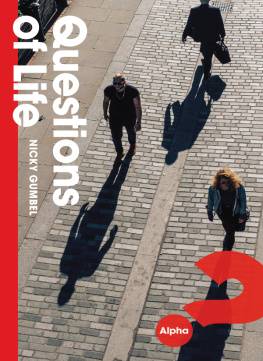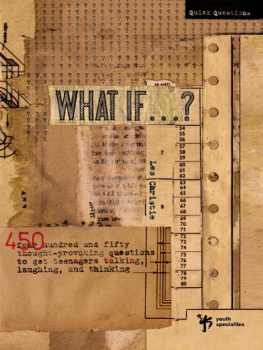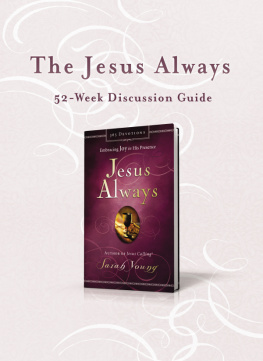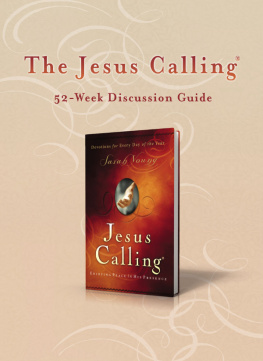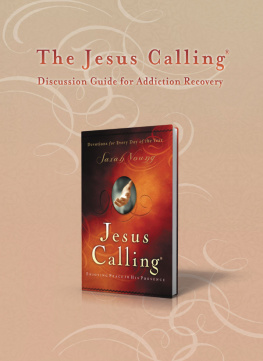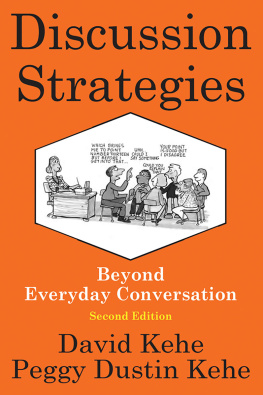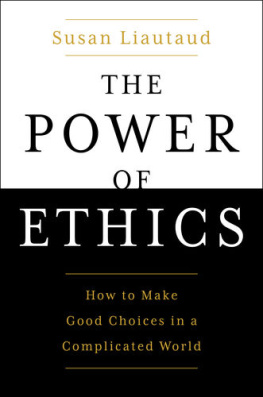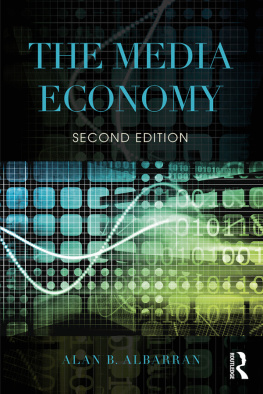Praise for Mudhouse Sabbath
At a time when we are so aware of the differences between Judaism and Christianity, Lauren Winners book on what we can learn from each other is so refreshingly welcome.
Rabbi Harold Kushner, author of When Bad Things Happen to Good People
[Winner is] a gifted writer who has much to teach us about the deep and indestructible bonds between Judaism and Christianity.
Richard Mouw, past President, Fuller Seminary
A compelling engaging (and at times appropriately humorous) tour of rarely exposed yet Biblically rooted spiritual disciplines.
Relevant Magazine
The strongest reason to read this book... is that it makes one think. I have been considering some of her statements and discussing them with friends ever since I read the book, and Ive ordered copies for close friends and recommended it to just about anyone who would listen to me. Book clubs would have much to talk about after reading this, and it should have a beneficial impact on our Christian community, if we will listen.
The Living Church
Mudhouse Sabbath not only reminds us that Christianity is fundamentally birthed from and nurtured by the Jewish tradition but invites us to reconnect with this rich heritage. Here we are encouraged to feed our Christian faith by planting deep roots in the fertile soil of Jewish spirituality and practice.
Peter Rollins, author of How (Not) To Speak of God
Lauren Winner speaks the language of this generation. It is authentic, free and bold.
Ben Young, author of The Ten Commandments of Dating
For all of us who cant get our spiritual lives in shape by shipping out to a monastery, Lauren Winner explores simple, do-able ways of keeping company with God in the ordinary, day-to-day world of eating, working, resting, romancing, aging, earning, grieving, and celebrating. Her rich identity as a Jewish/Christian/scholar/writer informs every sentence.
Brian McLaren, pastor and author of A New Kind of Christian

Photography: Jen Fariello
LAUREN F. WINNER is the author of numerous books, including Girl Meets God, Mudhouse Sabbath, Still: Notes on a Mid-faith Crisis, and Wearing God. She has appeared on PBSs Religion & Ethics Newsweekly and has written for the New York Times Book Review, the Washington Post Book World, Publishers Weekly, Books and Culture, and Christianity Today. Winner has degrees from Duke, Columbia, and Cambridge universities, and holds a PhD in history. Lauren teaches at Duke Divinity School and lives in Durham, North Carolina. Lauren travels extensively to lecture and teach.
MUDHOUSE
SABBATH
An Invitation to a Life of
Spiritual Discipline
STUDY EDITION
Lauren F. Winner

Mudhouse Sabbath: An Invitation to a Life of Spiritual DisciplineStudy Edition
2015 First Printing This Edition
Mudhouse Sabbath copyright 2003 by Lauren F. Winner
Mudhouse Sabbath Study Edition copyright 2015 by Lauren F. Winner
ISBN: 978-1-61261-453-3
The names and identifying details of a few of the people who appear in these pages have been changed.
Unless otherwise designated, Scripture quotations are taken from the New Revised Standard Version of the Bible, 1989 by the Division of Christian Education of the National Council of the Churches of Christ in the USA. Used by permission.
Scripture quotations marked (NIV) are taken from the Holy Bible, New International Version. Copyright 1973, 1978, 1984 International Bible Society. Used by permission of Zondervan Bible Publishers.
Scripture quotations marked (NASB) are taken from the New American Standard Bible. Copyright 1960, 1962, 1963, 1968, 1971, 1972, 1973, 1975, 1977, 1995, by the Lockman Foundation. Used by permission.
Scripture quotations marked (KJV) are taken from the King James Version of the Bible.
Scripture quotations marked (ESV) are from the ESV Bible (The Holy Bible, English Standard Version), copyright 2011 by Crossway Bibles, a publishing ministry of Good News Publishers. Used by permission. All rights reserved.
The Paraclete Press name and logo (dove on cross) are trademarks of Paraclete Press, Inc.
Library of Congress Cataloging-in-Publication Data
Winner, Lauren F.
Mudhouse Sabbath : an invitation to a life of spiritual discipline / Lauren F. Winner. STUDY EDITION.
pages cm
Includes bibliographical references.
Originally published: c2003.
ISBN 978-1-61261-453-3
1. Winner, Lauren F. 2. JudaismLiturgy. 3. Anglican CommunionLiturgy. 4. Anglican convertsUnited StatesBiography. 5. Christian converts from JudaismUnited StatesBiography.
I. Title.
BV2623.W56A3 2015
10 9 8 7 6 5 4 3 2 1
All rights reserved. No portion of this book may be reproduced, stored in an electronic retrieval system, or transmitted in any form or by any meanselectronic, mechanical, photocopy, recording, or any otherexcept for brief quotations in printed reviews, without the prior permission of the publisher.
Published by Paraclete Press
Brewster, Massachusetts
www.paracletepress.com
Printed in the United States of America
CONTENTS
INTRODUCTION
to the Study Edition
The book you are reading was conceived fourteen years ago, not long after my conversion from Judaism to Christianity. I was enraptured by the church and everything I was learning as a new Christian about all that I might do to notice, hear from, and be pulled more fully into friendship with God. I was captivated by the Lords Prayer, Eucharist, lectio divina. At the same time, I missed much about my life as an observant Jew. There was a certain religious choreography in observant Judaism that drew me into a daily awareness of God and of the holy. I found I missed the way Jewish practice helped create sacred space in my home, and the way Jewish practice connected even the most mundane actions, like eating, to life with God.
Mudhouse Sabbath began as a meditation on those things I missed. As I wrote, I realized that many of the Jewish spiritual practices I missed were not incompatible with life as a Christianindeed, many of them were part of the deep structure of Christianity, too: Judaism and Christianity, for example, both name prayer as a place where we can encounter (and be encountered by) God. Both traditions name Sabbath-keeping as a way to dwell non-productively with God. And so the book changed shape a bit, becoming less a bundle of nostalgia and yearning, and more a reflection on a set of spiritual practices that, in fact, organize both Judaism and Christianity. The question I sought to answer was What can Christians learn from Judaism about these practices that structure both our traditions, and what can Christians learn from Judaism about the God we both worship?
Of course, my life with God, and my thinking about religious practice, has grown and changed in the last decade and a half. Today, when I open Mudhouse Sabbath, I notice that, if their wholesale absence from this book is any indicator, categories and questions that are important to my thinking today were not on my mind at all years ago. Most centrally, the idea that pursuing Gods justice in the world, and expecting to encounter God while doing so, has become important to my spiritual life, and to my understanding of what life as a disciple of Jesus entails, but I say virtually nothing about it in this book. That silence was most obvious to me while rereading two chapters: fasting and Sabbath. So, as you read the fasting chapter in this new edition, I ask you to hold in mind a question that you wont find addressed there: how does temporarily, voluntarily abstaining from food connect us not only with God, but also with those who have too little food? How, in other words, is fasting an act of solidarity with hungry peoplepeople who live in the cracks and crevices of society, people for whom Jesus seems to have a special fondness? This notion that fasting quickens rich peoples sympathies for poor people is, by the way, something that Jewish and Christian tradition have discussed over the centuriesa discussion often prompted by Gods question, in Isaiah:
Next page

